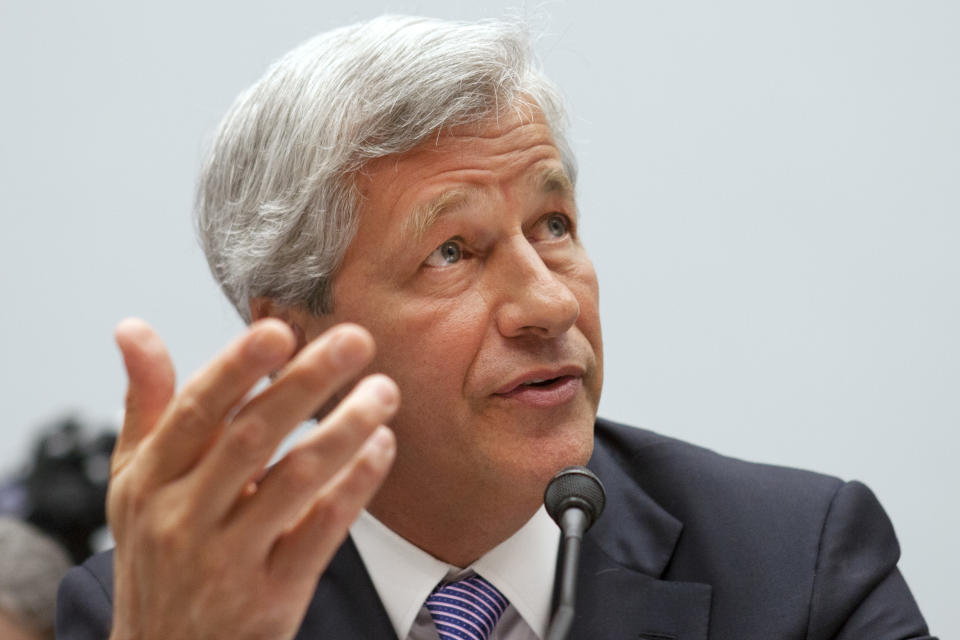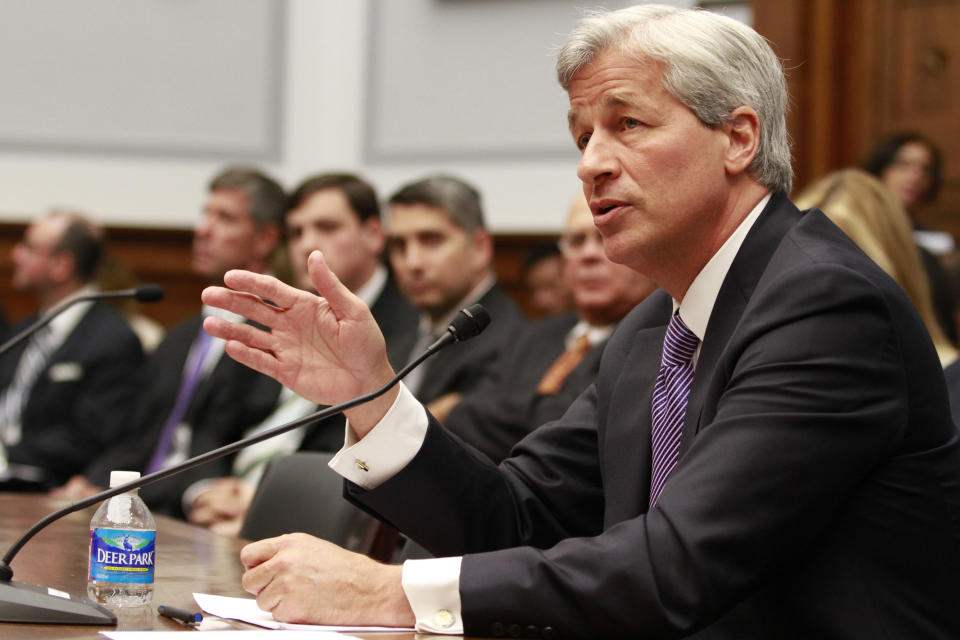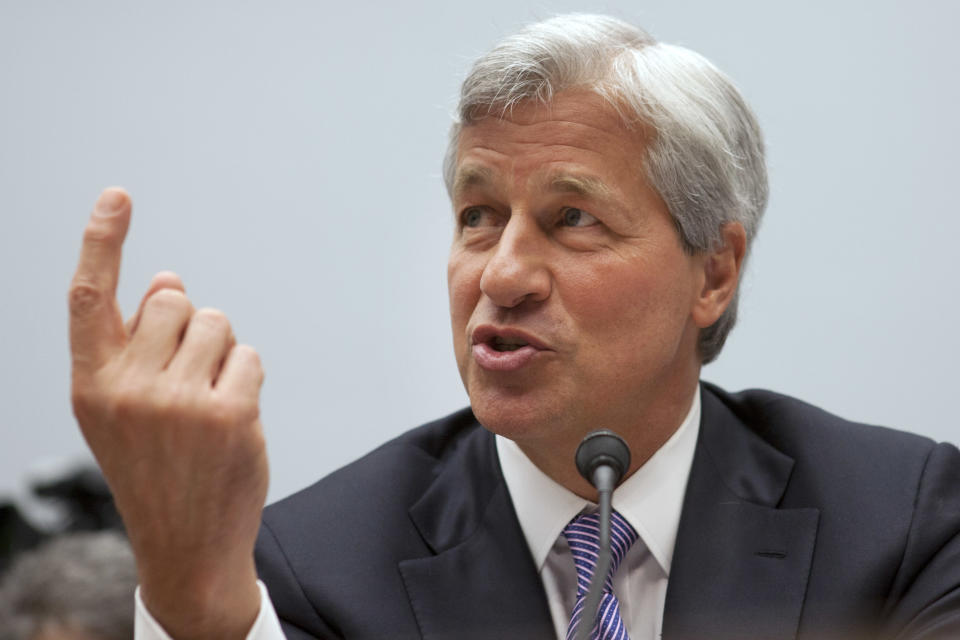Dimon: JPMorgan trusted risk models before loss
WASHINGTON (AP) — JPMorgan Chase CEO Jamie Dimon says the bank did its best to fully inform investors about its risk strategy several weeks before it suffered a $2 billion-plus trading loss.
Dimon told the House Financial Services Committee Tuesday that the bank trusted its methods for assessing risk and that the models used provided the best information at the time. The risk models are frequently updated, he said.
"We disclosed what we knew when we knew it," Dimon told the panel.
The Securities and Exchange Commission is examining whether JPMorgan's earnings report on April 13 gave adequate information on the risk model the bank was using.
Earlier at the hearing, SEC Chairman Mary Schapiro told the panel "there could be" violations that would merit legal sanctions against the bank.
Dimon apologized again for the trading loss and the damage it caused to shareholders. The company has lost about $23 billion in market value since it came to light on May 10.
But Dimon stressed that taxpayers and customers of the bank were not affected by the loss.
The tone of the hearing was more combative than when Dimon appeared last week before the Senate Banking Committee.
Dimon was pressed by four Democrats about the bank's trading operation in London, where the loss occurred. Rep. Brad Sherman, D-Calif, asked why the bank devoted hundreds of billions of dollars to that operation when that money could go have gone to small business loans in the U.S.
"We never stopped making loans," Dimon insisted.
He also defended an exemption that allows looser oversight of the sort of derivatives trading overseas that the London operation engages in.
Customers "will go elsewhere if we can't give them the best possible deal," Dimon said. "The main mission of this company is to serve clients around the world."
Rep. Shelley Moore Capito, R-W.Va., used the hearing to criticize regulators for failing to detect the risks the bank was taking before suffering the loss.
"We need more information about the level of information-sharing among the agencies and how five agencies with a combined 100 or more personnel supervising JPMorgan at the time did not know about the substantial size and risk of these trades," said Capito.
Dimon defended the regulators. He said that if bank couldn't detect the risks, it's unreasonable to expect that the regulators could.
.



